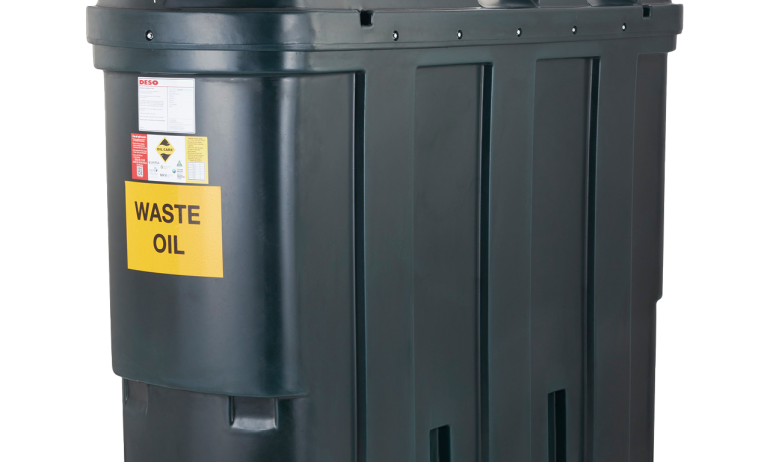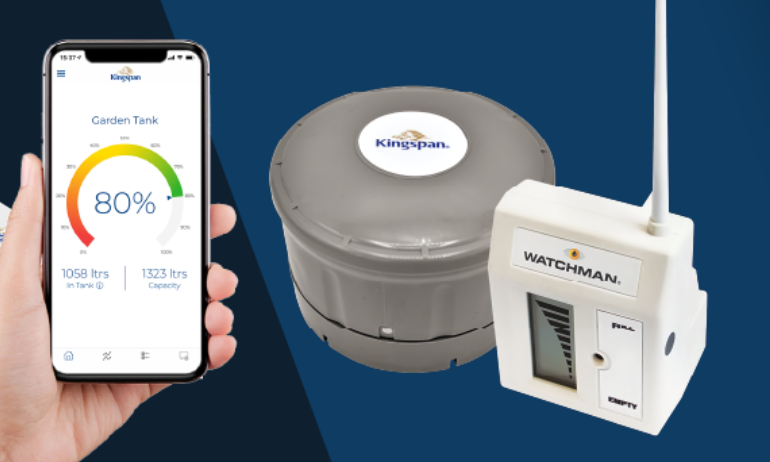Waste Oil Tanks

Waste oil tanks play a crucial role in the safe and responsible management of used oil. The following guide will provide you with an overview of what waste oil tanks are, their purposes, where they should be placed, and the regulations surrounding their emptying and disposal in the UK.
Waste oil tanks, also known as used oil tanks or oil collection tanks, are containers designed to store and collect used oil generated from various sources, such as automotive workshops, industrial facilities, and commercial establishments. These tanks are typically made of durable materials, such as plastic or steel, to ensure safe storage of the potentially hazardous waste oil.
There are many types of oil and their properties, which may have changed during use, dictate how they are classed when they become waste. Technical guidance to help you classify your waste can be found on GOV.UK.
The most common waste oils, derived from fuels or lubricants, originally come from petroleum oil, sometimes known as mineral oils. Many lubricants may also contain synthetic components. Waste oil is harmful to the environment and needs to be managed carefully.
But other common oils, including vegetable-based materials used for cooking can become waste as well.
You may need to account for Health and Safety guidance as well as the environment.

Plastic
Waste Oil Tanks
Steel
Waste Oil TanksWhere should Wate Oil Tanks be situated?
To ensure proper containment and prevent environmental contamination, waste oil tanks should be placed in designated areas that comply with relevant regulations.
Key Considerations for the tank placement includes:
- Location: Tanks should be positioned on stable ground away from water bodies, drainage systems, and sensitive environmental areas
- Spill Prevention: Adequate spill containment measures, such as secondary containment systems, should be in place to prevent leaks and spills.
- Accessibility: Tanks should be easily accessible for authorised personnel to facilitate regular maintenance and emptying.
Emptying waste oil tanks
Timely and proper emptying of waste oil tanks is essential to prevent overflow, leaks, and potential environmental harm.
Proper oil disposal methods ensure that the oil is recycled or treated to remove contaminants, reducing the risk of pollution to soil, water, and air.
Compliance with local regulations is essential, this is why identifying approved waste oil collectors are key to safely dispose of your waste. Without the necessary infrastructure for safe handling and recycling, the disposal cannot be carried out by individuals who aren’t licensed. Licensed Waste oil collectors will adhere to environmental regulations and possess the necessary permits for waste oil disposal. Once the tank is fully drained the collectors will transfer the used oil to a certified facility for recycling or proper disposal, ensuring proper documentations of the transfer and disposal process for legal compliance.
Another key step to think about when your waste oil tank becomes full and you need to empty it, is to schedule your collection. If you arrange regular collection and emptying of the waste oil tank based on the volume of oil generated and local regulations, you will never have to worry about any accidents with overflowing.
The end result should be an empty, ready-to-use waste oil tank on your commercial or industrial site, all with minimal impact to the environment.
Regulations for Waste Oil Tanks
Here in the United Kingdom, several regulations govern the management and disposal of waste oil to protect the environment and human health. Below are some regulations to be aware of, however please check locally for your regulations and authorities for specific requirements.
- Environmental Permitting Regulations: These regulations outline the requirements for storing, treating, and disposing of waste oil. They also address spill prevention, secondary containment, and record-keeping obligations.
- Hazardous Waste Regulations: Waste oil classified as hazardous waste due to its potential harm to the environment. Compliance with hazardous waste regulations, such as proper labelling, storage, and transfer documentation, is essential.
- Duty of Care: The Duty of Care regulations in the Uk impose responsibilities on waste oil producers, carriers, and recipients to ensure proper handling, storage, and disposal of waste oil.
Read More from Fuel Tank Shop

Watchman Smart Monitoring Systems
Watchman Smart Monitoring Systems
Oil Tank Accessories Explained
Oil Tank Accessories Explained

 Login
Login